Real-Life Applications of AI: The Series Part 2
Welcome to the second instalment of my captivating series, “Real-Life Applications of AI.” In this edition, I delve into the dynamic realms of finance, transportation, manufacturing, and retail & e-commerce. Brace yourself for a thrilling exploration of how artificial intelligence is revolutionizing these industries, reshaping the way we conduct business and interact with the world around us.
Finance

Artificial intelligence (AI) has revolutionized the finance industry, enabling faster and more accurate decision-making, risk assessment, fraud detection, and personalized customer experiences.
Algorithmic Trading

At the forefront of AI-driven finance is the realm of algorithmic trading, where powerful AI algorithms analyze vast amounts of financial data to identify patterns and execute trades at unparalleled speed. One notable example is Goldman Sachs’ Marquee platform, which leverages AI and natural language processing to extract crucial insights from news articles and social media, enabling more informed and data-driven trading decisions. This innovative approach to algorithmic trading has been highlighted in reputable articles such as “Goldman Sachs Is Building a Bitcoin Trading Desk,” showcasing the transformative potential of AI in finance.
Fraud Detection and Risk Assessment

AI is transforming fraud detection and risk assessment in the financial industry. JPMorgan Chase, a prominent financial institution, has implemented AI-powered models that scrutinize millions of transactions in real-time, enabling the detection of suspicious patterns and preventing unauthorized activities. This robust AI-driven system, as covered in the article “JPMorgan Uses AI to Spot Rogue Employees in Trading Business,” showcases the capacity of AI to enhance security measures and protect against financial misconduct.
Personalized Financial Services

The advent of AI has paved the way for personalized financial services, tailoring investment strategies and advice to individual needs and goals. Wealthfront, a leading robo-advisor platform, exemplifies this trend by leveraging AI algorithms to construct customized investment portfolios based on customers’ risk profiles, financial objectives, and prevailing market conditions. This personalized approach to finance is highlighted in “Wealthfront: The rise of the robo-advisors,” demonstrating the power of AI in providing tailored and accessible financial services.
Additionally, ZestFinance employs AI to revolutionize credit scoring by considering nontraditional data points, such as web browsing history and mobile app usage, alongside traditional credit histories. This holistic approach enables more accurate credit risk prediction, benefiting lenders and borrowers alike. To learn more about this use case, the article “AI in Banking and Lending: How ZestFinance Uses AI to Improve Credit Scoring” provides valuable insights.
Transportation
AI is transforming the transportation industry, enabling safer, more efficient, and sustainable modes of travel. By leveraging AI’s capabilities, transportation stakeholders can navigate the challenges of modern mobility and create a future where intelligent transportation systems redefine the way we move. But let’s see some examples of that.
Autonomous Vehicles
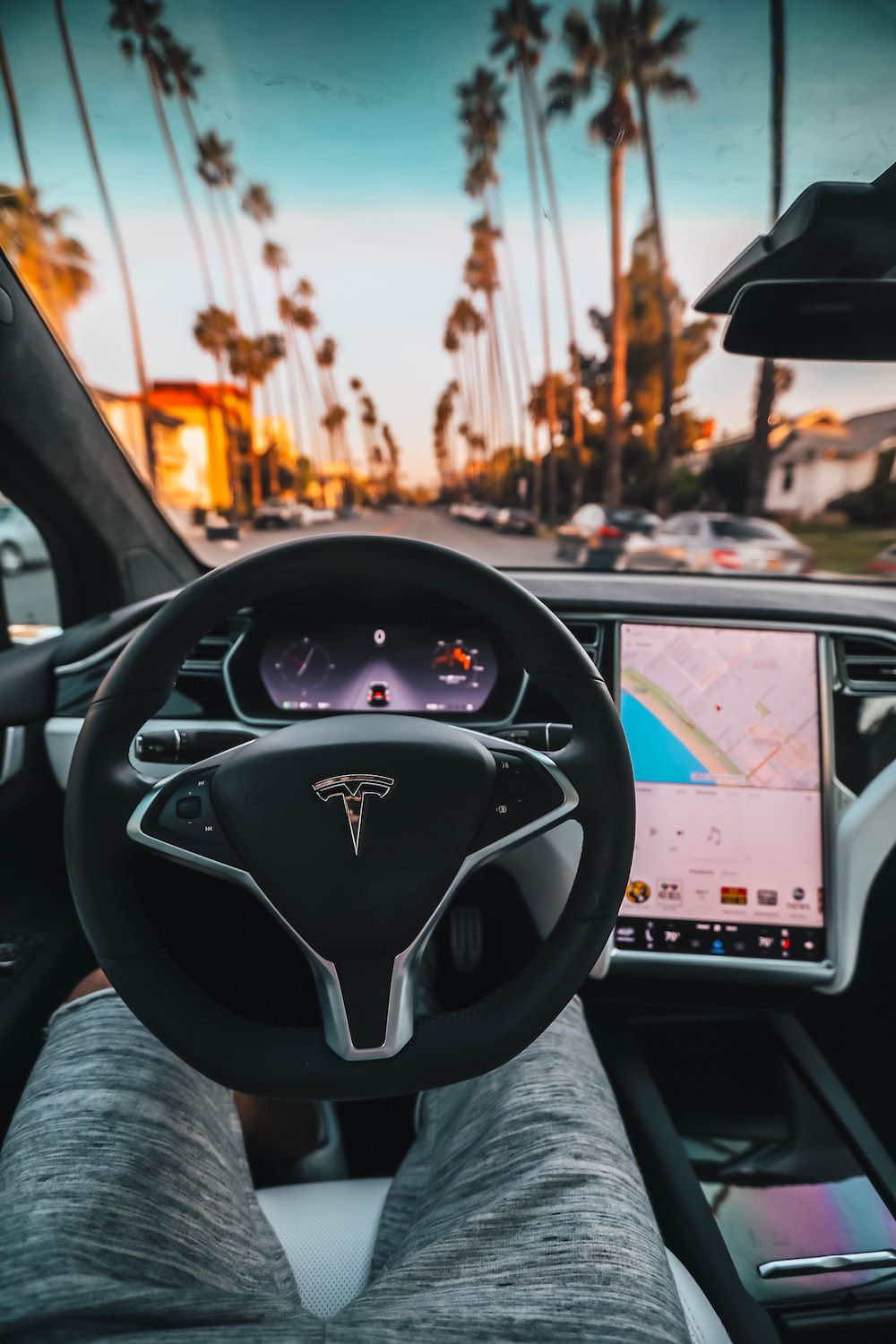
The rise of AI has propelled the development of autonomous vehicles, revolutionizing transportation as we know it. Companies like Tesla and Waymo are leading the charge in self-driving technology. Their AI-powered systems employ advanced sensors, computer vision, and machine learning algorithms to navigate roads, interpret surroundings, and make split-second decisions. Articles such as “Tesla Autopilot AI System” shed light on the remarkable advancements in autonomous driving, showcasing how AI is reshaping the future of transportation.
Intelligent Traffic Management

AI plays a crucial role in optimizing traffic flow and reducing congestion. Smart city initiatives leverage AI algorithms to analyze real-time traffic data, monitor patterns, and dynamically adjust traffic signals and routing systems. By optimizing traffic management, AI helps improve commuting efficiency and reduce travel times. Reputable articles like “AI-Powered Traffic Management for Smart Cities” highlight the transformative potential of AI in creating smarter, more sustainable transportation systems.
Predictive Maintenance

AI has revolutionized maintenance practices in transportation. By leveraging machine learning and predictive analytics, transportation companies can monitor equipment health in real-time, detect anomalies, and predict maintenance needs. This proactive approach minimizes unplanned downtime, reduces maintenance costs, and enhances overall operational efficiency. Notable articles like “Predictive Maintenance in the Transportation Industry” provide valuable insights into how AI-powered predictive maintenance is transforming the transportation sector.
Intelligent Logistics
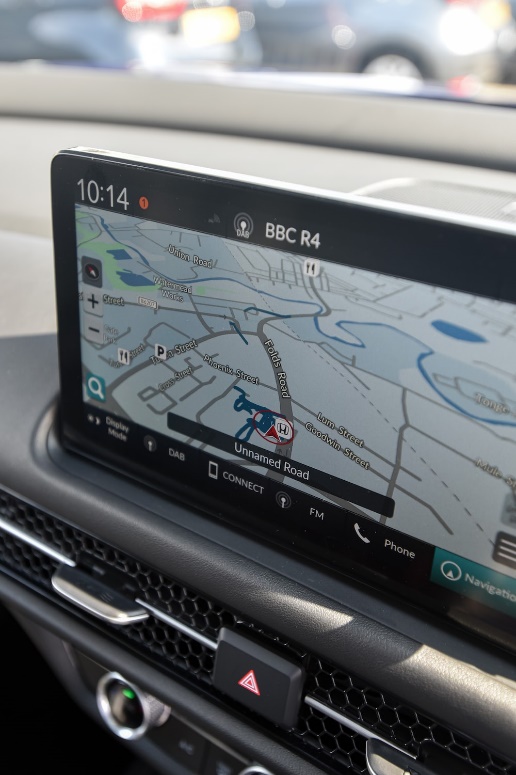
AI-driven logistics solutions optimize routes, enhance fleet management, and streamline supply chain operations. By analyzing vast amounts of data, including traffic patterns, weather conditions, and delivery schedules, AI algorithms can determine the most efficient routes, reduce fuel consumption, and ensure timely deliveries. This results in improved customer satisfaction and cost savings. Articles like “AI-Driven Logistics: Transforming the Supply Chain” highlight how AI is reshaping the logistics landscape and revolutionizing the way goods are transported.
Manufacturing
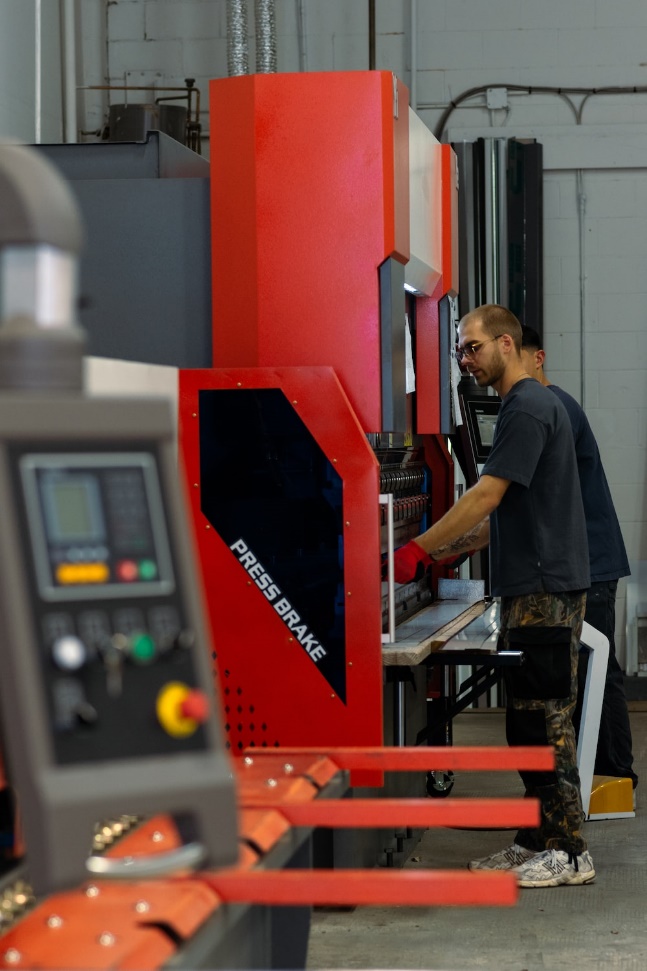
Step onto the factory floor, where the symphony of production unfolds with the help of artificial intelligence. In the realm of manufacturing, AI has emerged as a disruptive force, transforming traditional production lines into intelligent ecosystems. From collaborative robots working alongside humans to predictive maintenance and quality control, AI is redefining the manufacturing landscape. Join us on a thrilling journey as we explore the extraordinary ways in which AI is revolutionizing the world of manufacturing. Brace yourself for a glimpse into the future, where machines and algorithms converge to create an unprecedented era of efficiency, precision, and innovation.
Collaborative Robots (Cobots)
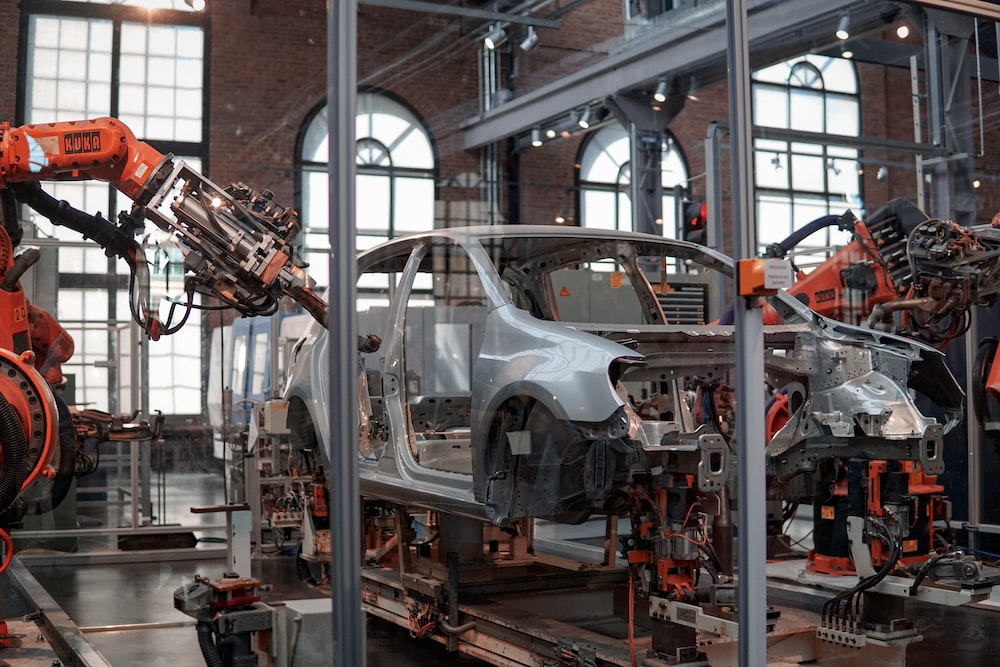
AI-powered collaborative robots, or cobots, are revolutionizing the manufacturing industry. These robots work alongside human operators, assisting in repetitive or physically demanding tasks, thereby increasing productivity and reducing human error. Cobots are equipped with AI algorithms that enable them to adapt to changing production needs and ensure safe collaboration with humans. Notable articles like “The Rise of Collaborative Robots in Manufacturing” shed light on how AI-driven cobots are transforming the manufacturing landscape.
Predictive Maintenance
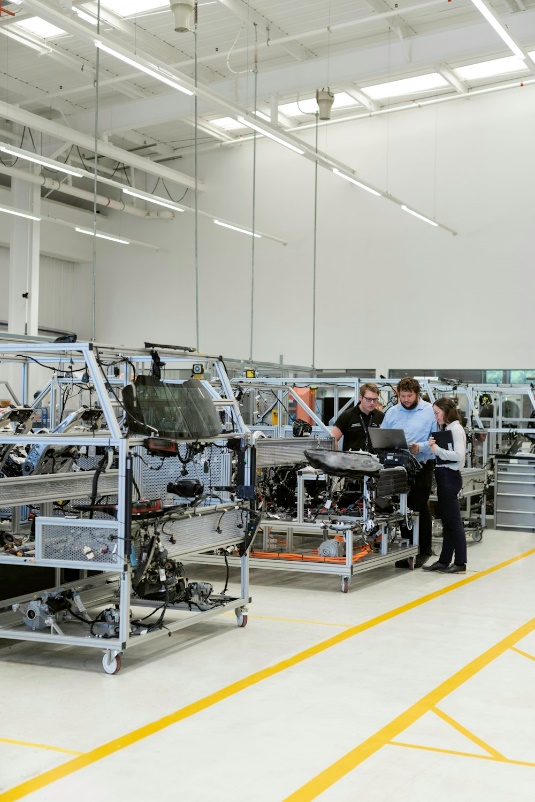
AI is powering predictive maintenance in manufacturing, enabling proactive equipment maintenance and minimizing unplanned downtime. By analyzing real-time sensor data, machine learning algorithms can predict when machines are likely to fail, allowing manufacturers to schedule maintenance activities in advance. This approach reduces maintenance costs, optimizes production schedules, and improves overall operational efficiency. Articles such as “How AI Is Revolutionizing Predictive Maintenance in Manufacturing” provide insights into the transformative impact of AI in this domain.
Quality Control and Defect Detection
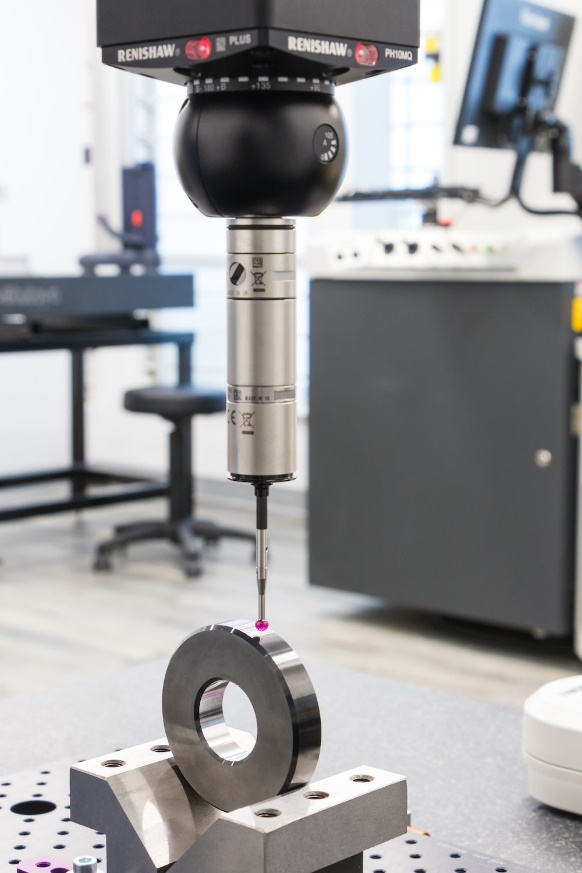
AI is transforming quality control processes by automating defect detection and ensuring product consistency. By leveraging computer vision and machine learning, AI systems can analyze images, identify defects, and classify products with exceptional accuracy. This enhances product quality, reduces waste, and speeds up the manufacturing process. Reputable articles like “AI-Powered Quality Control in Manufacturing” delve into how AI is revolutionizing quality control practices.
Supply Chain Optimization

AI-driven algorithms are optimizing supply chain management in manufacturing. By analyzing various data sources, including inventory levels, demand forecasts, and market trends, AI can optimize inventory management, streamline logistics, and minimize supply chain disruptions. This results in cost savings, improved customer satisfaction, and enhanced overall operational efficiency. Articles such as “AI and Supply Chain Optimization in Manufacturing” explore how AI is reshaping supply chain management practices.
Retail and e-Commerce

With AI at the helm, retailers are embracing personalized recommendations, virtual assistants, and innovative technologies. Get ready to explore how AI is revolutionizing the retail landscape, delivering tailored experiences, and pushing the boundaries of what’s possible in the world of commerce. Welcome to a future where AI and retail converge, creating a dynamic and captivating shopping journey.
AI-Powered Chatbots and Virtual Assistants

Step into the realm of customer support, where AI-powered chatbots and virtual assistants are taking center stage. These intelligent conversational agents leverage natural language processing and machine learning algorithms to provide round-the-clock assistance, answer customer queries, and offer personalized recommendations. From online retailers like Amazon to fashion brands like H&M, AI chatbots are transforming the customer service experience, as highlighted in articles such as “The Impact of AI Chatbots in Retail.”
Personalized Product Recommendations

AI algorithms have become masters of personalization, revolutionizing product recommendations in the retail industry. Through analyzing vast amounts of customer data, AI systems can understand individual preferences, purchase history, and browsing behaviour to offer personalized suggestions. Industry giants like Netflix and Spotify utilize AI to curate personalized content, while e-commerce platforms like eBay and Alibaba leverage AI-driven recommendation engines to enhance the shopping experience. Reputable articles like “The Power of AI in Personalized Retail Recommendations” delve into the transformative impact of AI on personalized product recommendations.
AI-Powered Visual Search

Imagine a world where snapping a photo with your smartphone can instantly lead you to the product you desire. AI-powered visual search makes this possible, enabling users to search for products using images rather than keywords. Retailers like Pinterest and ASOS have embraced AI visual search technology, allowing customers to find similar products, discover new styles, and bridge the gap between inspiration and purchase. This cutting-edge technology is explored in articles like “AI Visual Search: Transforming Retail Discovery.”
Dynamic Pricing Optimization

AI algorithms are revolutionizing pricing strategies in retail and e-commerce. By analyzing market trends, competitor pricing, and customer demand, AI can dynamically adjust prices in real-time to optimize revenue and maximize profitability. Airlines like Delta and e-commerce platforms like Amazon utilize AI-driven dynamic pricing algorithms to offer personalized pricing tailored to each customer’s unique characteristics. Articles such as “The Role of AI in Dynamic Pricing Optimization” shed light on how AI is transforming pricing strategies in retail.
Wrapping Up
As I reflect on the remarkable applications of AI in finance, transportation, manufacturing, and retail & e-commerce, it becomes evident that we are witnessing a monumental shift in the way industries operate and interact with customers. The transformative power of AI is reshaping traditional practices, unleashing new possibilities, and propelling us into a future where intelligence and automation prevail.
From algorithmic trading and fraud detection to autonomous vehicles and personalized product recommendations, AI is revolutionizing every facet of our lives. It empowers us to make data-driven decisions, navigate complex systems with ease, and unlock unprecedented levels of efficiency and innovation.
But our exploration is far from over. Stay tuned for the final part of this series, where we delve into more fascinating domains like education, construction, and defense, unveiling the astounding ways in which AI is transforming these industries.


